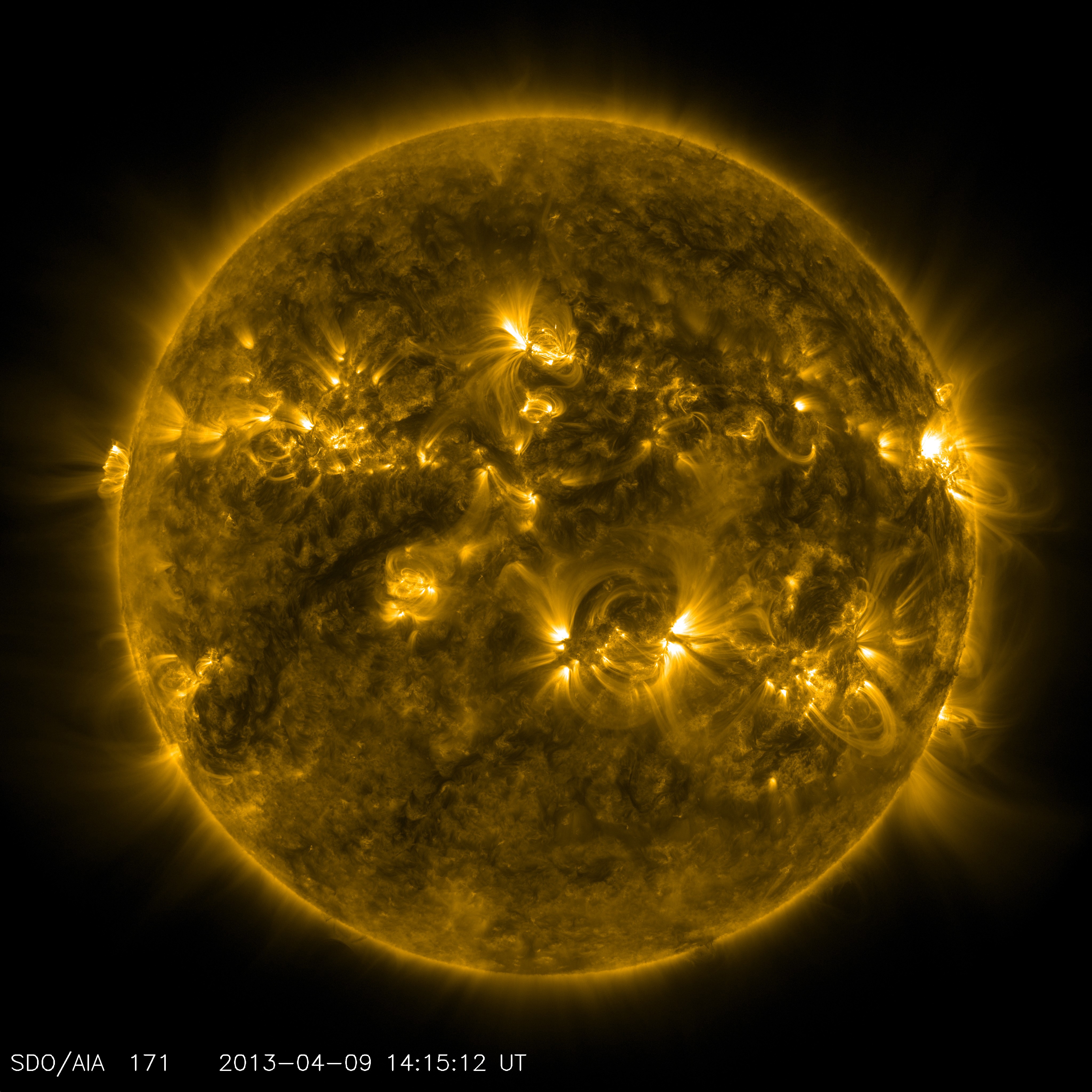|
WaLSA Team
The Waves in the Lower Solar Atmosphere (WaLSA) team is an international consortium that is focused on investigating wave activity in the Sun's lower atmosphere. The purpose of the group is to understand how magnetohydrodynamic (MHD) waves generated within the Sun's interior and lower atmosphere affect the dynamics and heating of its outer layers. The WaLSA team's research has been supported by organizations including the Research Council of Norway through the Rosseland Centre for Solar Physics, the Royal Society, and the International Space Science Institute The International Space Science Institute (ISSI) is an Institute of Advanced Studies based in Bern, Switzerland. The institute's work is interdisciplinary, focusing on the study of the Solar System, and encompasses planetary sciences, astrophysics .... Research The WaLSA team's research focuses on understanding various wave modes propagating through solar structures. They have investigated the coupling mechanisms be ... [...More Info...] [...Related Items...] OR: [Wikipedia] [Google] [Baidu] |
Consortium
A consortium () is an association of two or more individuals, companies, organizations, or governments (or any combination of these entities) with the objective of participating in a common activity or pooling their resources for achieving a common goal. Consortia are generally nonprofit with a goal to help its members improve their competitiveness in the specific field. is a Latin word meaning " partnership", "association", or "society", and derives from ("shared in property"), itself from ("together") and ("fate"). Examples Educational The Universities' consortium is established to share research laboratories and equipment facilities, exchange faculty and students, provide programs abroad, and form specialized research centers and admissions offices.Wallace Lang D (1975). "The consortium in higher education". ''Journal of Educational Administration'', 13(2), 23-36. https://doi.org/10.1108/eb009730 Generally, it includes a corporate identity, voluntary membership of in ... [...More Info...] [...Related Items...] OR: [Wikipedia] [Google] [Baidu] |
Magnetohydrodynamic
In physics and engineering, magnetohydrodynamics (MHD; also called magneto-fluid dynamics or hydromagnetics) is a model of electrically conducting fluids that treats all interpenetrating particle species together as a single continuous medium. It is primarily concerned with the low-frequency, large-scale, magnetic behavior in plasmas and liquid metals and has applications in multiple fields including space physics, geophysics, astrophysics, and engineering. The word ''magnetohydrodynamics'' is derived from ' meaning magnetic field, ' meaning water, and ' meaning movement. The field of MHD was initiated by Hannes Alfvén, for which he received the Nobel Prize in Physics in 1970. History The MHD description of electrically conducting fluids was first developed by Hannes Alfvén in a 1942 paper published in ''Nature'' titled "Existence of Electromagnetic–Hydrodynamic Waves" which outlined his discovery of what are now referred to as ''Alfvén waves''. A ... [...More Info...] [...Related Items...] OR: [Wikipedia] [Google] [Baidu] |
Research Council Of Norway
The Research Council (also the Research Council of Norway; ) is a Norwegian government agency that funds research and innovation projects. On behalf of the Government, the Research Council invests NOK 11,7 billion (2022) annually. The Research Council is responsible for promoting basic and applied research and innovation. This is done by managing research funding and by advising the authorities on research policy, among other things through proposals for the research budget in the National Budget. The Research Council works to promote international research and innovation cooperation, and has a number of schemes to mobilise Norwegian applicants for the EU Research and Innovation Programme. Other tasks include creating meeting places for researchers, trade and industry, public administration, public actors and other users of research. The Research Council was established in 1993 through the merging of five different previously created research councils. The Research Council has ... [...More Info...] [...Related Items...] OR: [Wikipedia] [Google] [Baidu] |
Royal Society
The Royal Society, formally The Royal Society of London for Improving Natural Knowledge, is a learned society and the United Kingdom's national academy of sciences. The society fulfils a number of roles: promoting science and its benefits, recognising excellence in science, supporting outstanding science, providing scientific advice for policy, education and public engagement and fostering international and global co-operation. Founded on 28 November 1660, it was granted a royal charter by Charles II of England, King Charles II and is the oldest continuously existing scientific academy in the world. The society is governed by its Council, which is chaired by the society's president, according to a set of statutes and standing orders. The members of Council and the president are elected from and by its Fellows, the basic members of the society, who are themselves elected by existing Fellows. , there are about 1,700 fellows, allowed to use the postnominal title FRS (Fellow ... [...More Info...] [...Related Items...] OR: [Wikipedia] [Google] [Baidu] |
International Space Science Institute
The International Space Science Institute (ISSI) is an Institute of Advanced Studies based in Bern, Switzerland. The institute's work is interdisciplinary, focusing on the study of the Solar System, and encompasses planetary sciences, astrophysics, cosmology, astrobiology, and the Earth sciences. A main activity is the interpretation of experimental data collected by space research missions. ISSI provides various scientific opportunities, such as funding for International Teams and Workshops, to space scientists around the globe to meet and collaborate. With the Johannes Geiss Fellowship, it supports established international scientists to make further demonstrable contributions to Space Science. ISSI is a non-profit organization and a foundation under Swiss law. ISSI operations are supported by grants from the European Space Agency, the Swiss Confederation and the Swiss Academy of Sciences (SCNAT). The University of Bern contributes through a grant to a Director and in-kind facil ... [...More Info...] [...Related Items...] OR: [Wikipedia] [Google] [Baidu] |


